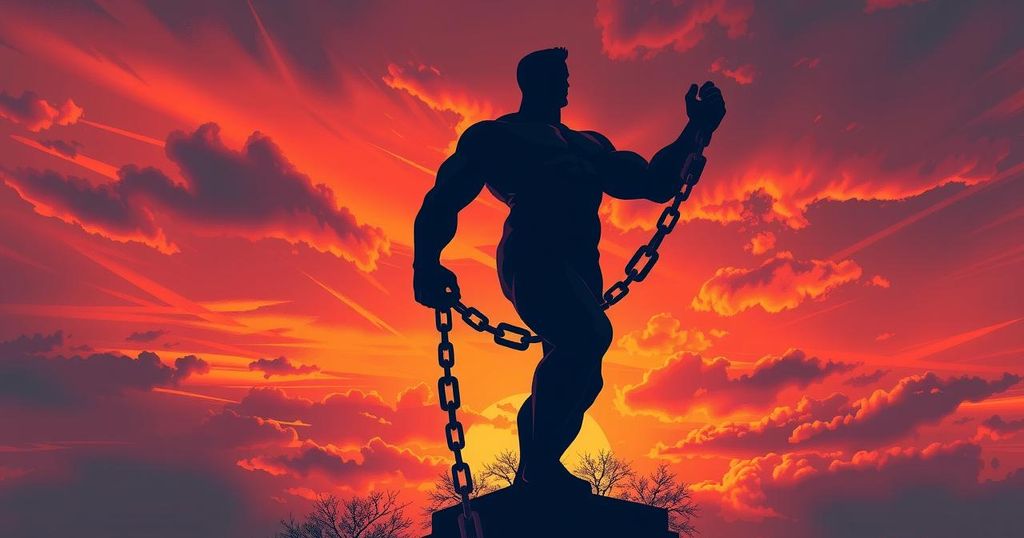Rodrigo Duterte’s Detention: The Fall of the Philippine Ex-President Amid Legal Troubles
Rodrigo Duterte, the former Philippine president, has been arrested following an ICC warrant regarding extrajudicial killings. His detention reflects the collapse of his political alliance with the Marcos family and is poised to significantly affect their futures in the upcoming elections, spotlighting the tensions between domestic politics and international accountability.
Rodrigo Duterte, the former president of the Philippines, has recently found himself in custody as he nears his 80th birthday. Upon arriving in Manila from Hong Kong, where he had been garnering support for upcoming elections among the Filipino diaspora, Duterte was met by police following the execution of an arrest warrant from the International Criminal Court (ICC) that the Philippine government had already obtained.
After his arrival, a visibly frail Mr. Duterte was quickly relocated to an air force base and prepared for transport to the ICC in The Hague. The rapid development raised questions about how such a powerful figure, often referred to as “the Trump of Asia,” could become so vulnerable.
Despite protests from his legal team and family regarding the legality of the arrest and concerns for his health, the charges he faces stem from an ICC investigation into thousands of extrajudicial killings linked to his anti-drug and crime campaigns initiated during his presidency and earlier as mayor of Davao.
While Duterte had sought to protect himself from legal repercussions through an alliance with the Marcos family, this partnership ultimately fractured. The alliance was intended to secure political positions for both Bongbong Marcos and Duterte’s daughter, Sara, but differences in governance and ambitions led to tensions.
The political landscape shifted as President Marcos moved away from Duterte’s policies, leading to a significant deterioration in their relationship. This included actions such as the proposal for an impeachment trial against Sara Duterte, reflecting the hostile dynamics between the two families who previously sup-ported one another.
Consequently, Marcos has strategically marginalized Duterte. While there is potential for popular mobilization against the prosecution, the majority of the focus remains on the upcoming mid-term elections in May, which will serve as a test of both families’ enduring influence.
Although President Marcos cited compliance with Interpol regarding Duterte’s transport, many Filipinos are likely to scrutinize the legitimacy of the ICC’s role, especially following Duterte’s withdrawal from the court. The ICC, facing challenges regarding its authority, may perceive Duterte’s extradition as a victory, despite warning from external parties like China against politicizing such cases. This suggests that the ramifications of Duterte’s position may reverberate beyond just his fate, intertwining with the broader issues of accountability and sovereignty in the Philippines.
Rodrigo Duterte’s arrest marks a significant shift in the political landscape of the Philippines, highlighting the fallout from his controversial presidency and the breakdown of his alliance with the Marcos family. As he faces charges related to extrajudicial killings, the outcome of his case may impact the political futures of both clans amid an upcoming election. The complex interplay of power dynamics and public sentiment will determine the implications of Duterte’s prosecution in the context of Filipino governance and international law.
Original Source: www.bbc.com




Post Comment